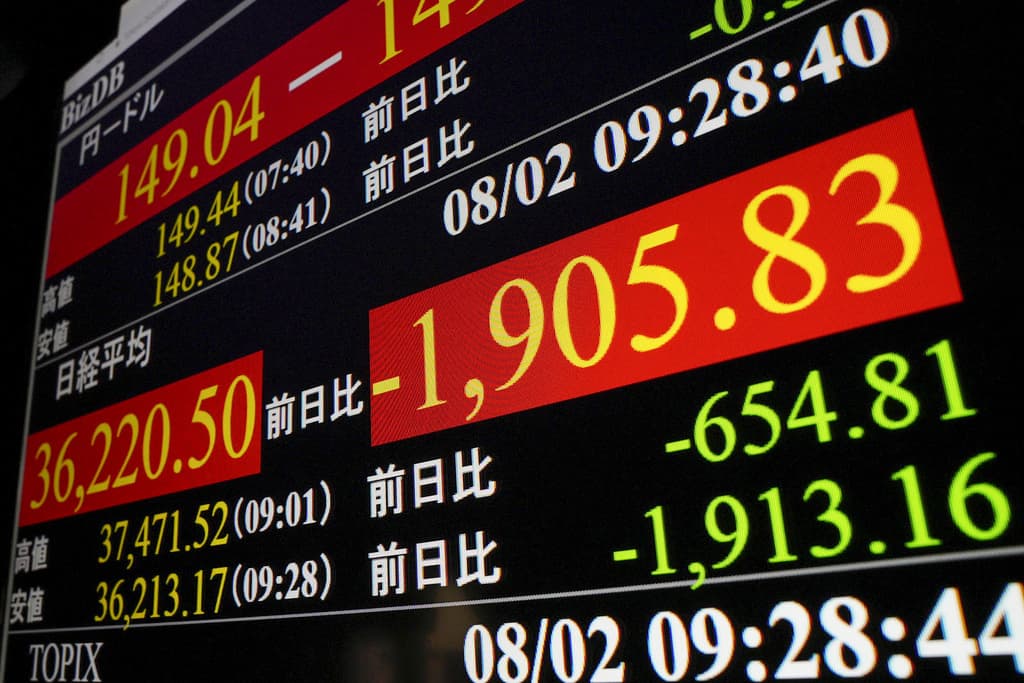The global stock market anxiety is increasing. During the night, the Tokyo stock exchange had its worst fall since Black Monday in 1987, and ahead of the opening, it is red on several of the leading European stock exchanges.
Robert Bergqvist, senior economist at SEB, sees five explanations for the current turmoil on the world's stock markets.
+ Anxiety over the US economy
A major reason for the global stock market anxiety can be traced back to last week's figures from the US on rising unemployment, fewer new jobs, and an unexpected slowdown in the manufacturing industry in the country.
The statistics show that the US may be slowing down faster than expected. It is the world's largest economy, and if it slows down more than expected, it is a concern for the entire world.
How the stock markets will be affected in the future depends largely on news about the US economy.
We want confirmation that the US economy is not stalling, so we will be looking with a magnifying glass at all growth indicators that can give us that answer. The second question we want an answer to is how central banks will react to this, he says, and means that there is now speculation about large interest rate cuts from the US.
We have two American central bank speeches today, it will be extremely exciting to see what they say about American monetary policy.
+ Geopolitical situation
The geopolitical situation in the Middle East is also a strongly influencing factor in the anxiety on stock markets around the world, according to Bergqvist.
There are reports of potential escalations in the crisis and war in the Middle East. This reduces risk appetite, which also affects the stock markets. There is always a background concern about what will happen.
+ Poor reports from the AI and tech sector
In recent weeks, we have had a so-called tech chill, which is partly linked to poor reports from some companies in the tech sector, which has created nervousness.
+ Raised interest rate in Japan
Last week, Japan's central bank announced an interest rate hike of 0.2 percentage points. The country's interest rate is still "extremely low", according to Bergqvist, but the fear of further hikes contributes to the Japanese stock market's decline.
+ Seasonally weak period
We are in a seasonally weak period, where stock markets tend to be weak. So it's not really surprising that it's happening, even if they are very weak right now.






